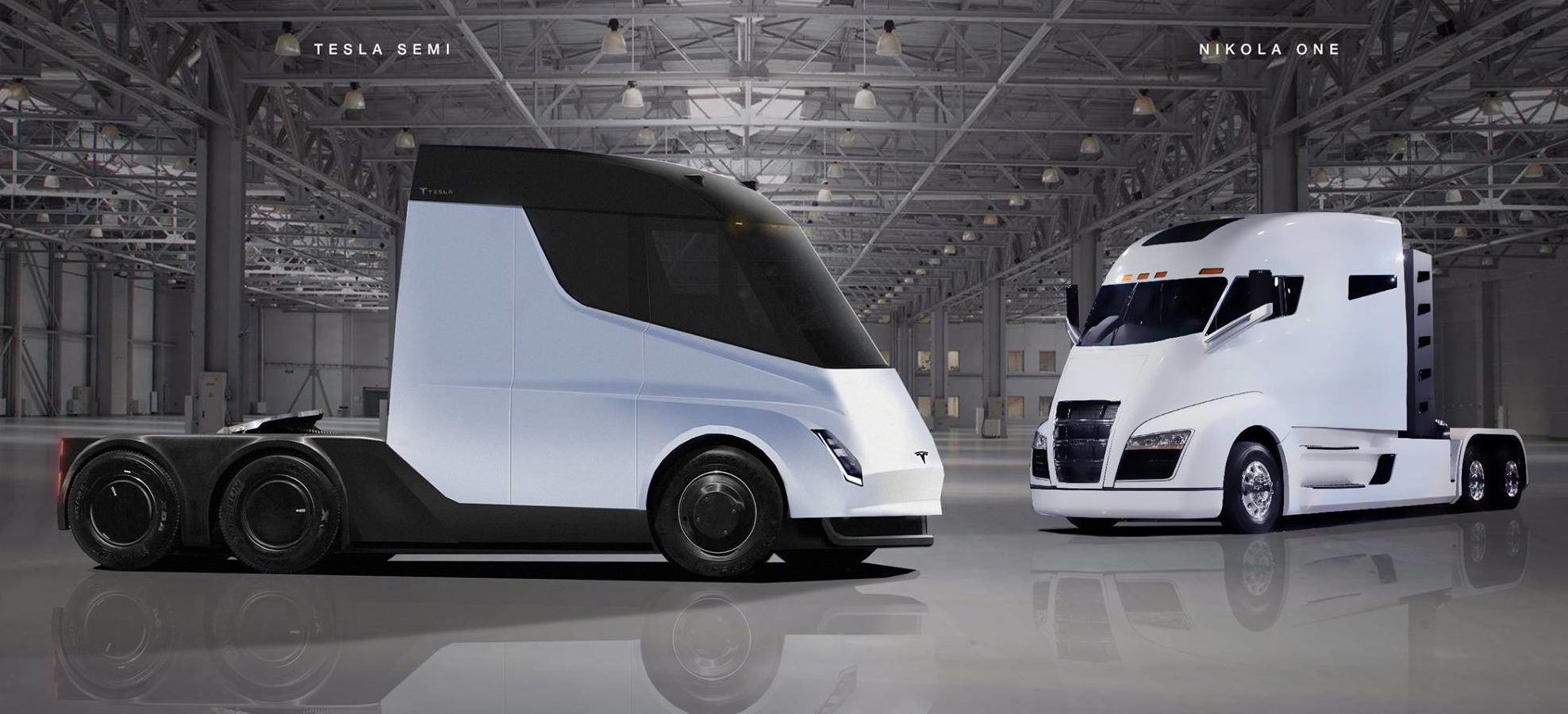
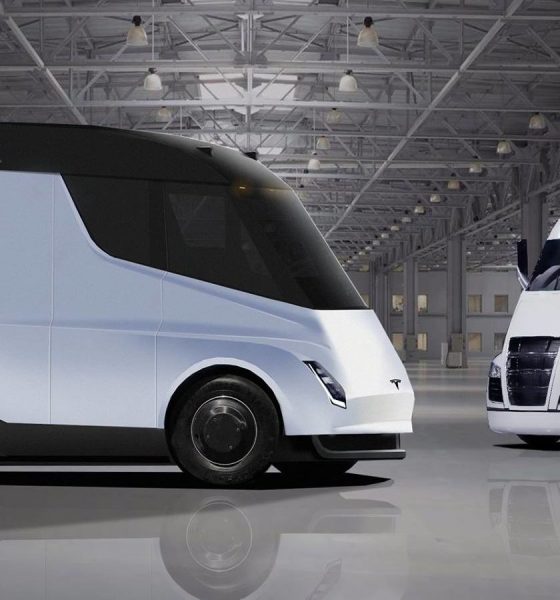
News
Tesla Semi rival Nikola sues for $2 billion over alleged patent infringement
Tesla Semi rival Nikola Motors has filed a $2 billion lawsuit against the California-based electric car and energy company. According to trucking startup, the Tesla Semi’s design infringes on the patents of the Nikola One, its hydrogen fuel cell-powered sleeper cab.
Nikola’s complaint outlines several design aspects of the Semi that were allegedly copied from the One. Among these are the Semi’s wraparound windshield, mid-entry door, front fenders, and the electric truck’s aerodynamic body. The similar drag coefficient between the Nikola One (0.37) and the Tesla Semi (0.36) was also cited as further evidence that the Elon Musk-led company copied Nikola’s design.
The lawsuit also stated that Tesla, at one point, attempted to hire Nikola’s chief engineer not long after the One was unveiled to the public. Furthermore, a cease and desist letter was sent to Tesla before the unveiling of the Semi, asking the Elon Musk-led company to hold off on the vehicle’s announcement until its patent issues with Nikola were resolved. Tesla, however, opted to ignore the request.
Overall, Nikola claims that the Tesla Semi is causing “confusion in the market,” and it is already harming its business. The startup further stated that the similarities between the Semi and the One would result in damages to the Nikola brand, considering the problems exhibited by Tesla’s vehicles. An excerpt from Nikola’s lawsuit could be found below.
“Tesla’s design has caused confusion among customers. The confusion has diverted sales from Nikola to Tesla. Further, any problems with the Tesla Semi will be attributed to the Nikola One, causing harm to the Nikola brand.
“For example, Tesla has had problems with its batteries starting fires and its autonomous features causing fatal accidents. Should these problems arise with the Tesla Semi, the market will attribute these problems to Nikola because of the similarities between the two vehicles.
“Customers will also impute the Tesla Semi’s limitations (distance and charging time) to Nikola, which will make Nikola’s product less appealing to customers. Nikola and Tesla are offering competing technology solutions (hybrid versus pure electric). Diverting sales from Nikola to Tesla decreases the chance that Nikola’s technology will be adopted as the standard for alternative fuel semi-trucks.
“Tesla’s infringement has harmed Nikola’s ability to attract investors and partners because investors can now partner with Tesla to have an alternative fuel semi-truck. Nikola estimates its harm from Tesla’s infringement to be in excess of $2 billion.”
In a statement to The Verge, a Tesla spokesperson dismissed the lawsuit.
“It’s patently obvious there is no merit to this lawsuit,” the Tesla spokesperson said.
Nikola has been raising its anti-Tesla game as of late. Just recently, we reported on the startup throwing shade at the Elon Musk-led company by stating that it would be refunding 100% of the reservations placed for its hydrogen fuel cell-powered trucks. Seemingly taking a dig at Tesla’s finances, Nikola boasted that it had already received more than $8 billion worth of pre-orders for its vehicles, and that has never used any deposit money to fund its operations.

News
Tesla hiring for Commercial Charging role hints at Semi push in Europe
The job opening was highlighted by David Forer, Senior Project Developer for Charging at Tesla, on LinkedIn.
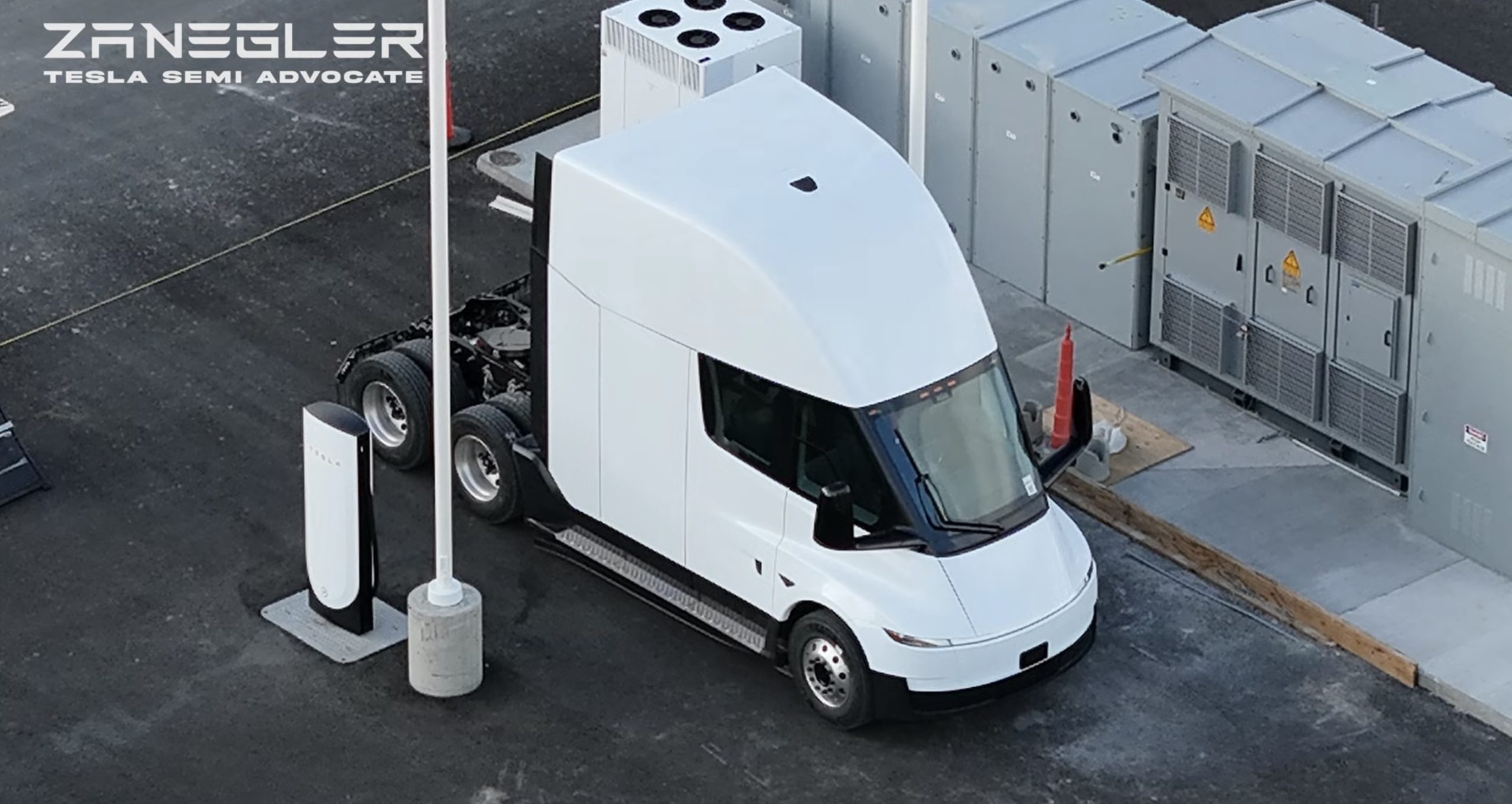
Tesla appears to be expanding its Commercial Charging efforts in Central Europe. The job opening was highlighted by David Forer, Senior Project Developer for Charging at Tesla, on LinkedIn.
In a post on LinkedIn, Forer stated that Tesla is looking for a “high-energy executer to own Commercial Charging Sales in Central Europe.” He added that the role will involve closing commercial deals across Tesla’s “entire product range (Supercharging & Megacharging).”
The job listing specifies that the hire will lead the sale of Tesla’s high-power charging products, including Supercharger and Heavy Duty Charging, to major partners such as charge point operators, real estate owners, and retail companies. The role requires fluency in German and English and is based onsite in Munich.
Tesla already operates more than 75,000 Superchargers globally, though the Semi’s Megacharger network is still in its early stages. The inclusion of Heavy Duty Charging in the job description is notable, then, as it aligns with Tesla’s Megacharger infrastructure, which is designed to support the Tesla Semi.
Tesla CEO Elon Musk recently confirmed that the Tesla Semi is moving into high-volume production this 2026. In a post on X, Musk noted that “Tesla Semi starts high volume production this year.”
Aerial footage of the Tesla Semi Factory near Giga Nevada also shows that the facility looks nearly complete, with work now underway inside the facility.
Tesla has also refreshed the Semi lineup on its official website, listing two variants: Standard and Long Range. The Standard trim offers up to 325 miles of range with an energy consumption rating of 1.7 kWh per mile, while the Long Range version provides up to 500 miles.
Both variants support fast charging and can recover up to 60% of range in 30 minutes using compatible infrastructure such as the Megacharger Network.
The presence of Heavy Duty Charging in a Central Europe-focused sales role could indicate that Tesla is preparing charging infrastructure ahead of wider Semi deployment in the region. While Tesla has not formally announced a European launch timeline for the Semi, the vehicle, particularly its range, makes it an ideal fit for the area.
Elon Musk
Tesla Full Self-Driving set to get an awesome new feature, Elon Musk says
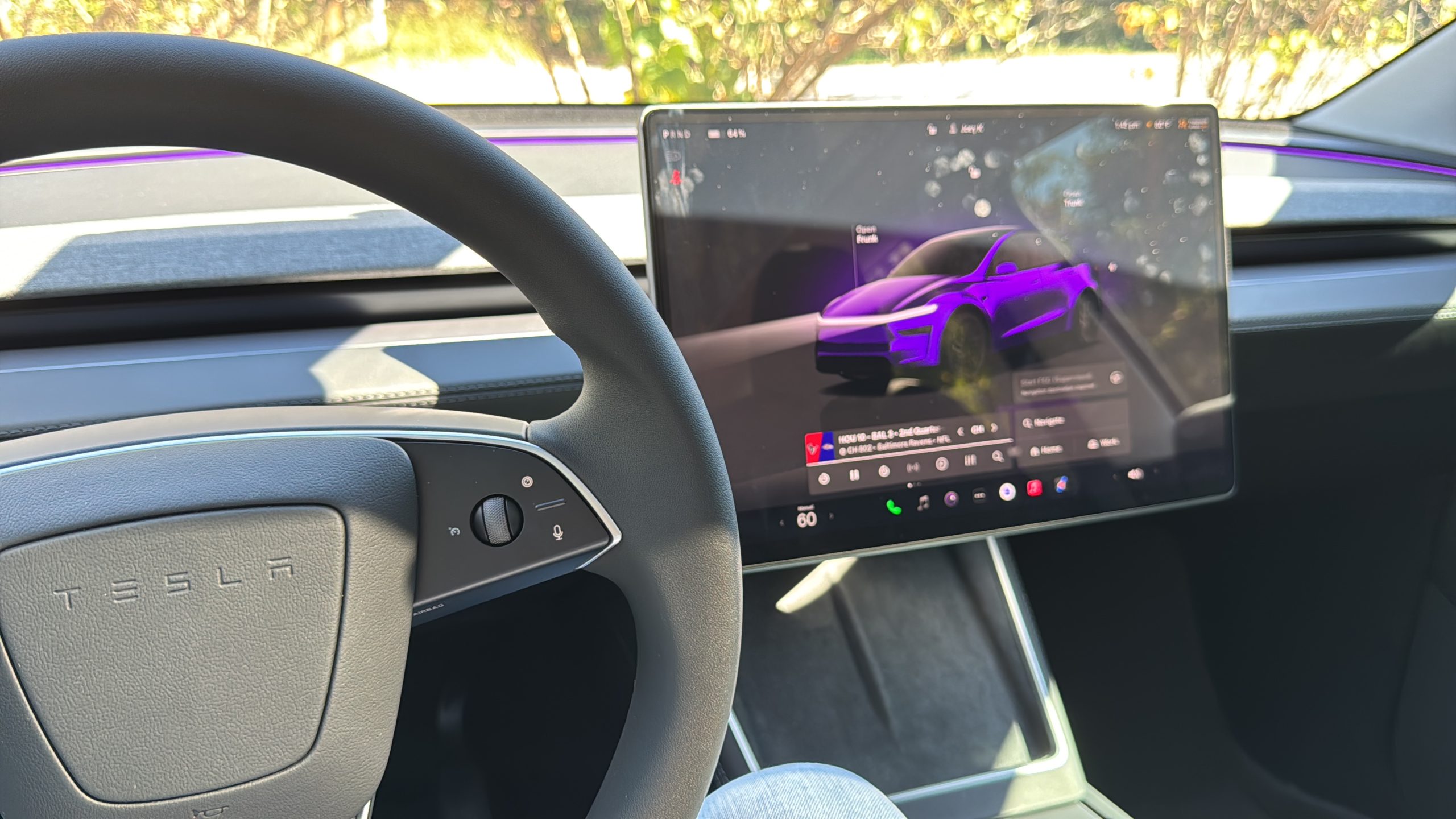
Tesla Full Self-Driving is set to get an awesome new feature in the near future, CEO Elon Musk confirmed on X.
Full Self-Driving is the company’s semi-autonomous driving program, which is among the best available to the general public. It still relies on the driver to ultimately remain in control and pay attention, but it truly does make traveling less stressful and easier.
However, Tesla still continuously refines the software through Over-the-Air updates, which are meant to resolve shortcomings in the performance of the FSD suite. Generally, Tesla does a great job of this, but some updates are definitely regressions, at least with some of the features.
Tesla Cybertruck owner credits FSD for saving life after freeway medical emergency
Tesla and Musk are always trying to improve the suite’s performance by fixing features that are presently available, but they also try to add new things that would be beneficial to owners. One of those things, which is coming soon, is giving the driver the ability to prompt FSD with voice demands.
For example, asking the car to park close to the front door of your destination, or further away in an empty portion of the parking lot, would be an extremely beneficial feature. Adjusting navigation is possible through Grok integration, but it is not always effective.
Musk confirmed that voice prompts for FSD would be possible:
Coming
— Elon Musk (@elonmusk) February 21, 2026
Tesla Full Self-Driving is a really great thing, but it definitely has its shortcomings. Navigation is among the biggest complaints that owners have, and it is easily my biggest frustration with using it. Some of the routes it chooses to take are truly mind-boggling.
Another thing it has had issues with is being situated in the correct lane at confusing intersections or even managing to properly navigate through local traffic signs. For example, in Pennsylvania, there are a lot of stop signs with “Except Right Turn” signs directly under.
This gives those turning right at a stop sign the opportunity to travel through it. FSD has had issues with this on several occasions.
Parking preferences would be highly beneficial and something that could be resolved with this voice prompt program. Grocery stores are full of carts not taken back by customers, and many people choose to park far away. Advising FSD of this preference would be a great advantage to owners.
Cybertruck
Elon Musk clarifies Tesla Cybertruck ’10 day’ comment, fans respond
Some are arguing that the decision to confirm a price hike in ten days is sort of counterproductive, especially considering it is based on demand. Giving consumers a timeline of just ten days to make a big purchase like a pickup truck for $60,000, and basically stating the price will go up, will only push people to make a reservation.
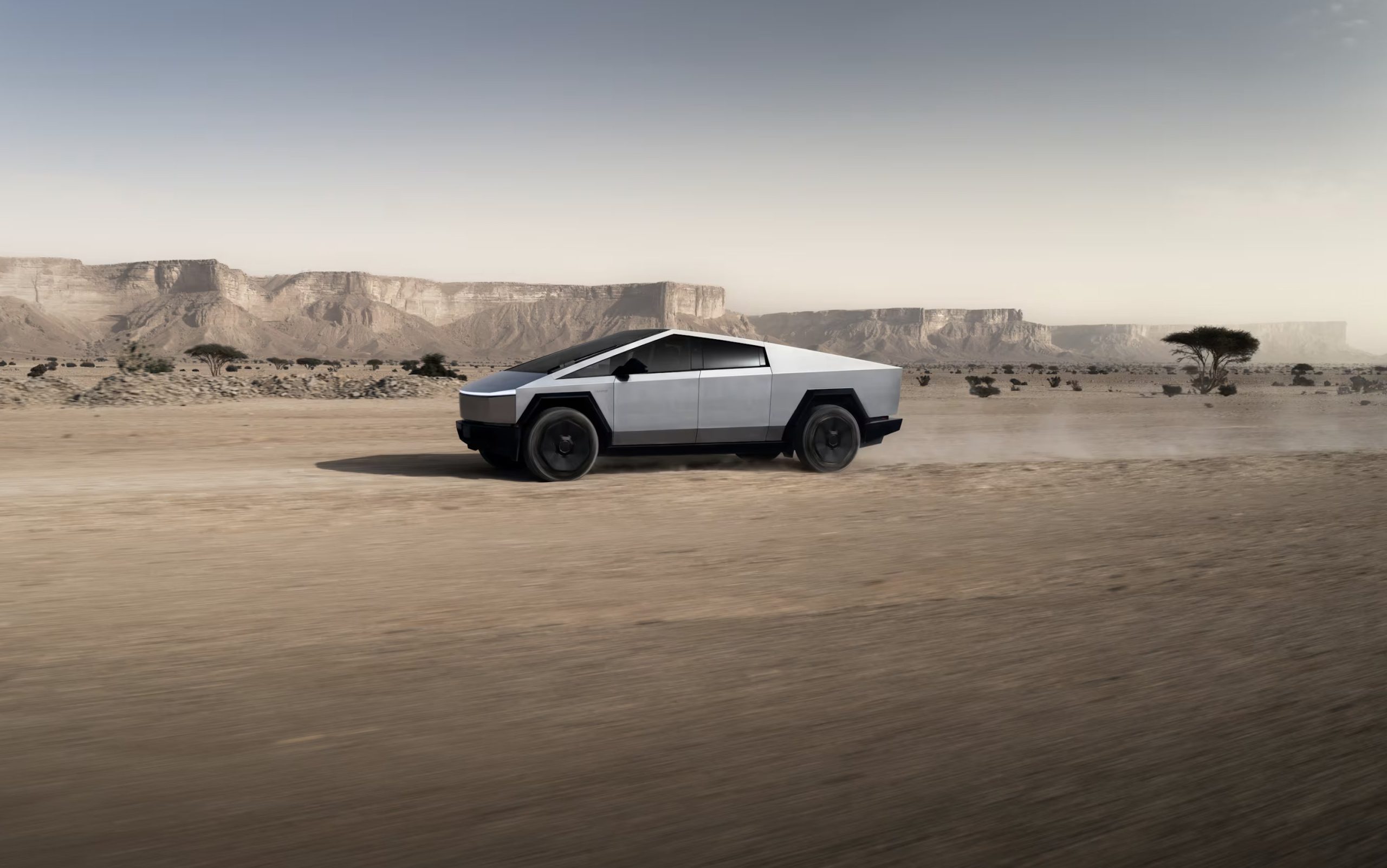
Elon Musk has clarified what he meant by his comment on X yesterday that seemed to indicate that Tesla would either do away with the new All-Wheel-Drive configuration of the Cybertruck or adjust the price.
The response was cryptic as nobody truly knew what Musk’s plans were for the newest Tesla Cybertruck trim level. We now have that answer, and fans of the company are responding in a polarizing fashion.
On Thursday night, Tesla launched the Cybertruck All-Wheel-Drive, priced competitively at $59,990. It was a vast improvement from the Rear-Wheel-Drive configuration Tesla launched last year at a similar price point, which was eventually cancelled just a few months later due to low demand.
Tesla launches new Cybertruck trim with more features than ever for a low price
However, Musk said early on Friday, “just for 10 days,” the truck would either be available or priced at $59,990. We can now confirm Tesla will adjust the price based on more recent comments from the CEO.
Musk said the price will fluctuate, but it “depends on how much demand we see at this price level.”
Depends on how much demand we see at this price level
— Elon Musk (@elonmusk) February 20, 2026
Some are defending the decision, stating that it is simply logical to see how the Cybertruck sells at this price and adjust accordingly.
Case 1: You don’t like it -> don’t buy it
Case 2 (me): You like it, it’s fits your situation and needs -> you buy it.
Case 3: Complain endlessly for no reason, you weren’t going to get one anyway, but you want people to know you’re mad, for some reason.
Silly netizens.— Ryan Scanlan 👥 (@Xenius) February 21, 2026
Others, not so much.
Alright I’m obviously not the one successful enough to be calling the shots at Tesla and worth almost a trillion dollars
But people were excited about the awesome Cybertruck news and then it got taken away, that’s why people are annoyed. The wording felt more like a threat.… pic.twitter.com/NWVNklcXoJ— Dirty Tesla (@DirtyTesLa) February 21, 2026
No but fr wtf you doing dude???????
— Greggertruck (@greggertruck) February 20, 2026
It’s how it was communicated.
If it had been stated clearly on the website for everyone to see, everyone would be fine.
— KiTT_2020 (@kitt_2020) February 20, 2026
Some are arguing that the decision to confirm a price hike in ten days is sort of counterproductive, especially considering it is based on demand. Giving consumers a timeline of just ten days to make a big purchase like a pickup truck for $60,000, and basically stating the price will go up, will only push people to make a reservation.
Demand will look strong because people want to lock in this price. The price will inevitably go up, and demand for the trim will likely fall a bit because of the increased cost.
Many are arguing Musk should have kept this detail internal, but transparency is a good policy to have. It is a polarizing move to confirm a price increase in just a week-and-a-half, but the community is obviously split on how to feel.








